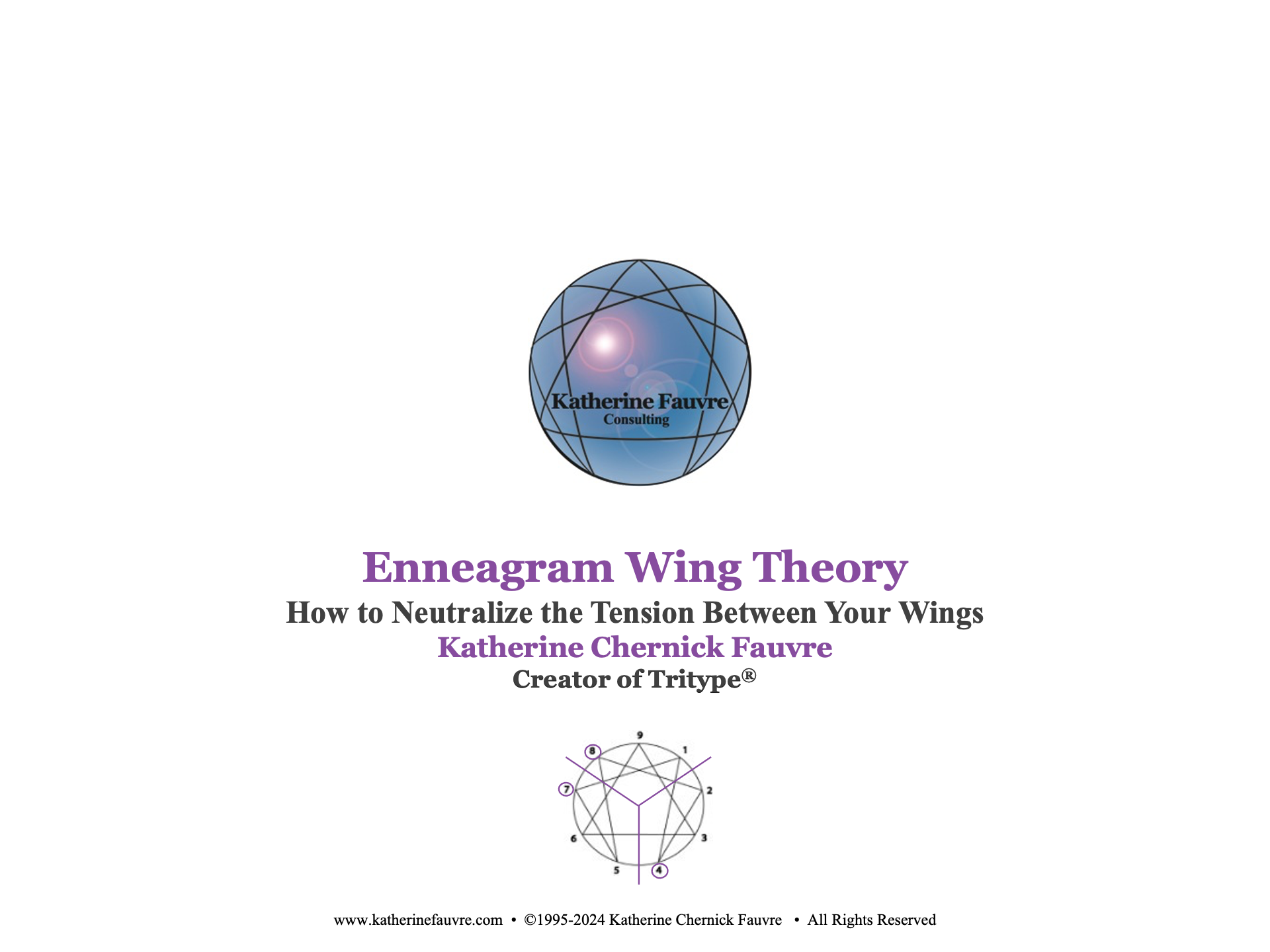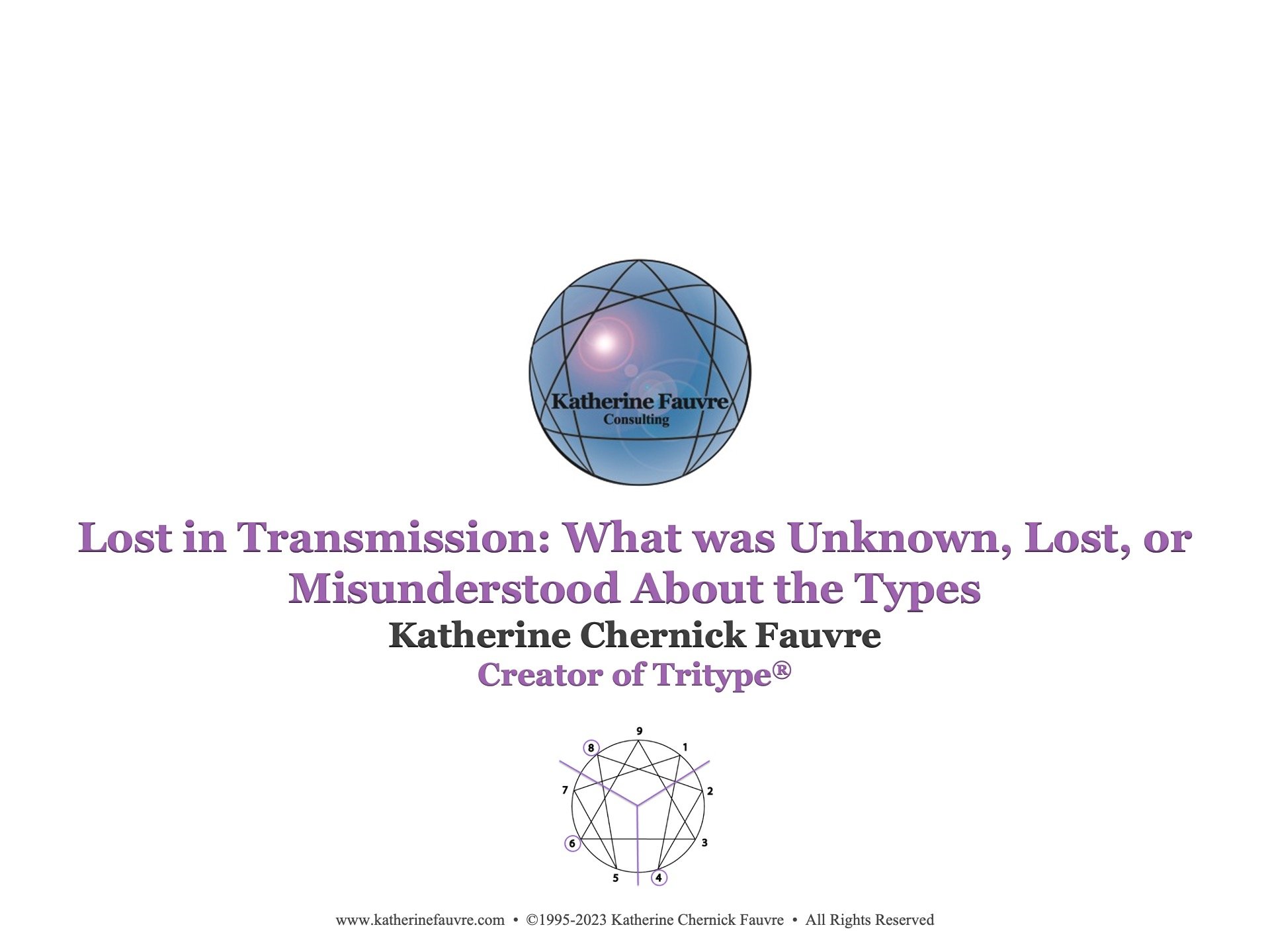Enneagram Type Lexicon: The Language of the 9 Enneagram Types, Tritypes®, and Instinctual Types - Digital Recording of a live Masterclass: Advanced Series
Enneagram Type Lexicon: The Language of the 9 Enneagram Types, Tritypes®, and Instinctual Types - Digital Recording of a live Masterclass: Advanced Series
Digital Recording of Katherine’s live Masterclass on Enneagram Type Lexicon.
This five video Masterclass recording includes
Research on Type and Lexicon
Participant Q&A to see the different exemplars and the language they use
More information below.
Enneagram Type Lexicon: The Language of the 9 Enneagram Types, Tritypes®, and Instinctual Types - 6-week Masterclass: Advanced Series
View Katherine as she teaches about the words and phrases each Enneagram type prefers to use and why.
Learn about the:
Most common words and phrases of each of the 9 Types
Common patterns of those who were initially mistyped
Patterns of outliers
Words and themes that explain differences among types.
Lex•i•con: A person's vocabulary, language, or branch of knowledge.
Since the 1980s, Katherine has continually refined the key points she uses to accurately determine Enneagram type. One of the most powerful ways to recognize Enneagram types is by their vocabulary.
Before beginning her 24 Enneagram-related studies, Katherine tracked and collected the words job interview applicants used to describe themselves.
In the 1970s, Katherine held an executive manager position that required her to quickly and effectively hire the right person for the right job. Finding, interviewing, hiring, training, and developing staff was costly and time-consuming. Her focus was on making it easier to determine what qualities worked best for a particular job and how to recognize those who would be a good fit. So, she created a one-sheet sentence-completion Interview Questionnaire.
This questionnaire immediately revealed important personality patterns, so she tracked the word choices of all of those she interviewed to expedite the hiring process. The results were so noteworthy that she enlisted the support of colleagues and associates to fill out the same questionnaire.
She was intrigued by the similarities in the word clusters applicants used and initially found 8-12 personality clusters. Those who chose the same adjectives to describe themselves shared the same personality style and also had the same ethic and approach to work. This made it possible for her to quickly recognize who would work well in what position, where, and with whom.
Katherine's position also required creating and coordinating special events involving many people across many departments and situations, so she gave the questionnaire to all those involved. Since the Interview Questionnaire was so informative, she wanted to learn more about how the personality types described themselves. She enlisted the support of friends, family, colleagues, and associates to fill out the same questionnaire to gather more data. This included Divisional Managers, Store Managers, Department Managers, Account Executives, Salespeople, Training managers, hotel staff, shipping personnel, operations, maintenance, builders and contractors of every type, restaurant staff, spiritual and religious communities, supervisors, friends of friends, adults, teenagers, students, principals, teachers, fellow airplane passengers, etc. The study's success came down to the gathered data from the cross-section of all those diverse walks of life, ages, genders, and economic, educational, and social statuses, from the street level to executive board levels.
One of the selling points was her desire to honor personality diversity. She would tell people who filled out the questionnaire what others with the same answers and adjectives were like: what made them happy, made them unhappy, what they wanted or didn't want to do, the work they liked, the positions they liked, family relations, and so on.
When she discovered the Enneagram in 1985, she straightaway recognized the word clusters as the Enneagram types and instinctual subtypes. The interview questionnaire was renamed the Enneastyle Questionnaire with a few additional questions. She immediately began conducting further studies and correlated her findings with other typologies, and what she had previously learned from the people she had interviewed.
Take the Enneagram Tritype® Test v8 here.





